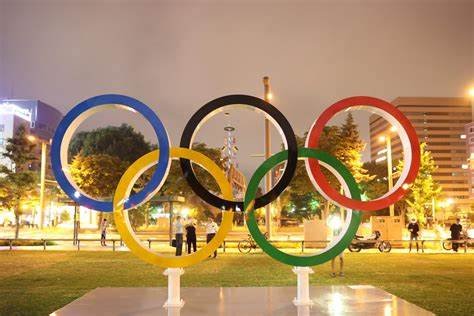The Olympic Games are the world’s largest sporting event and have been held every four years since the ancient Greeks first organized them in 776 BCE. Today, the Olympic Games are a celebration of international sport, competition, and culture, bringing together athletes from around the world to compete in a wide range of sports. However, the history of the Olympic Games goes far beyond mere athletic competition and has played an important role in shaping the cultural and political landscape of the world.
The ancient Olympic Games were held in Olympia, Greece, and were dedicated to the god Zeus. The games were a celebration of physical fitness, athleticism, and competition, and were open to male athletes from all over Greece. The ancient games featured a wide range of events, including foot races, wrestling, boxing, and chariot racing, and were a source of great national pride for the Greeks.
The ancient Olympic Games were held every four years, and the period between each set of games was known as an Olympiad. During this time, a truce was declared between the warring Greek city-states, allowing athletes and spectators to travel safely to and from Olympia. The ancient games were also a time for political and cultural exchange, with athletes and spectators from all over Greece coming together to share their ideas and traditions.
The ancient Olympic Games continued until 393 CE, when the Roman emperor Theodosius I banned them as part of his campaign to suppress pagan rituals. For nearly 1,500 years, the Olympic Games were forgotten, until a Frenchman named Pierre de Coubertin revived them in 1896.
The modern Olympic Games were held in Athens, Greece, and featured athletes from 14 countries competing in 43 events. The modern games were a great success, and subsequent games were held every four years in cities around the world. The modern games were also a time of political and cultural exchange, with athletes and spectators from around the world coming together to share their ideas and traditions.
Over the years, the Olympic Games have played an important role in shaping the cultural and political landscape of the world. The games have been used as a platform for political protest, with athletes using their platform to draw attention to issues ranging from civil rights to environmentalism. The games have also been a source of national pride, with countries using their success in the games as a way to assert their power and influence on the world stage.
Despite their cultural and political significance, the Olympic Games have also faced criticism over the years. Some have argued that the games are too expensive and that the money spent on the Olympic Games could be better spent on other social and economic issues. Others have criticized the games for their emphasis on nationalism and competition, arguing that they promote a sense of division and conflict rather than cooperation and unity.
Despite these criticisms, the Olympic Games remain an important cultural institution, bringing together people from around the world to celebrate the best in sport, competition, and human achievement. The games are a time of great pride and celebration, with athletes from all over the world competing at the highest level and representing their countries on the world stage.
The cultural significance of the Olympic Games is also reflected in the many traditions and symbols associated with the games. The Olympic flag, with its five interlocking rings representing the five continents of the world, is a powerful symbol of international cooperation and unity. The Olympic flame, which is lit at the start of each games and carried by runners around the world, is a symbol of the enduring spirit of the games and the human desire to achieve greatness.
In recent years, the Olympic Games have faced many challenges, including issues of corruption, doping, and political unrest. Nevertheless, the games continue to inspire and captivate people around the world, and remain a powerful symbol of the human spirit and the pursuit of excellence. Whether you are an athlete, a fan, or simply a lover of sport and culture, the Olympic Games are a celebration of all that is best in humanity, and a reminder of the power of sport to bring people together and inspire us to achieve great things.













